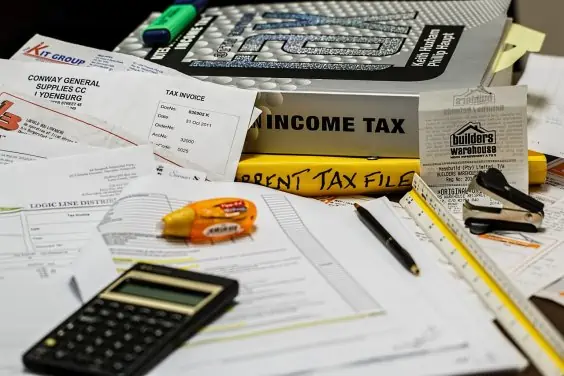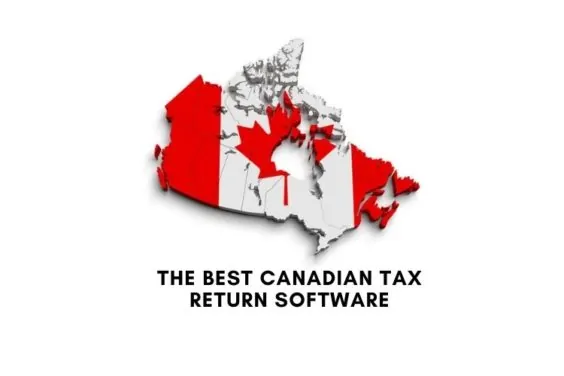If you write a cheque that exceeds the money in your bank account, you may get hit by the dreaded NSF fee after it bounces.
It’s not just bounced or bad cheques that attract non-sufficient fund (NSF) fees. Pre-authorized debits and electronic bill payments that result in an overdrawn account result in non-sufficient funds, and the penalty is an NSF fee and a whole lot of grief.
This article covers how NSF fees work in Canada, how to avoid or waive them, and whether NSF fees affect your credit score.
Bank NSF Fees in Canada in 2024
These are the NSF fees you will be charged by some of the most popular banks in Canada. Note that these fees are per dishonoured cheque or preauthorized payment.
- RBC NSF fee: $45 each
- Scotiabank NSF fee: $48
- CIBC NSF fee: $45
- BMO NSF fee: $48
- Tangerine NSF fee: $45
- TD NSF fee: $48
- Simplii Financial NSF fee: $45
What is a Non-Sufficient Fund Fee?
When a cheque cannot be cleared because of insufficient funds in the writer’s bank account, the bank refers to the cheque as a bounced, dishonoured, or bad cheque.
Instead of making the payment, the transaction is declined, and the bank tags on an NSF fee that is typically from $45 to $48 in Canada. If the check issuer has overdraft protection, the payment goes through, and they are charged overdraft fees instead.
If your chequing account is overdrawn and you have other linked accounts (e.g. savings or line of credit), your bank may fund the withdrawal from these accounts to avoid dishonouring the cheque and incurring an NSF fee.
An overdraft transfer fee may be charged for this service.
Related: Free Chequing Accounts in Canada
NSF Fee Example
If you have $300 in your account and write a cheque for $400, the cheque ‘bounces’ since your account is now overdrawn to the tune of $100.
Your bank hits you with a $45 NSF fee, leaving your new balance at $255, and you still owe the original $400 bill.
In some cases, the recipient of the cheque also charges a returned cheque fee which can be as high as the NSF fee levied by your bank. Double Whammy!
I discuss this in detail under the “how to waive NSF fees” section.
How Overdraft Protection Works
Instead of having your cheques bounce, you can opt-in for the overdraft protection offered by your bank. This service comes with a fee.
Overdraft is similar to a line of credit. Instead of declining your transactions, your bank lends you the money at a fee. Overdraft fees generally include a fixed monthly fee and a fixed interest rate on the outstanding overdraft balance.
Your overdraft limit determines how much your account can be overdrawn. For example, you may have a maximum overdraft limit of $1,000.
Some banks offer pay-per-use overdraft protection in which you pay a fee only when your account is overdrawn. In this case, you avoid the monthly fixed fee; however, interest still applies to your outstanding balance.
Overdraft Protection Fee vs. NSF Fee
The monthly overdraft protection fee is around $5. Pay-per-use fees are similar. A monthly overdraft protection subscription is cheaper if you anticipate going into overdraft more than once per month.
The annual interest rate charged by banks on overdraft balances is up to 22%.
Assuming your outstanding overdraft balance is $300, and it takes you two weeks (14 days) to pay up, at a 21% annual interest rate, you will be charged $2.42 in interest. Your total fee for overdraft protection will be approximately $7.42 (i.e. $5 monthly fee + $2.42).
On the other hand, NSF fees cost between $45 and $48 per occasion.
If you pay off your outstanding balances quickly, opting for overdraft protection is cheaper than paying $48 per strike!
Here are some of the overdraft fees charged by Canadian banks:
| Banks | Overdraft Protection Fees |
|---|---|
| TD | $4 per month or $5 per use plus a 21% annual interest rate |
| BMO | $5 per month; $5 per use; coverage from $250 to $2,500. $5 per transaction that increases the overdraft limit; $5 per overdraft transfer service |
| CIBC | $4 per month and $5 pay-per-use; 21% annual interest, service available from $100 to $5,000 |
| Simplii Financial | $4.97 minimum charge plus 19% annual interest |
| Tangerine | $5 per use (charged up to once per month); 19% overdraft interest per year |
| Scotiabank | $5 per month; 21% interest on the balance; overdraft protection available from $250 to $5,000; no monthly fee is charged if service is not used |
| RBC | $5 per month plus 22% interest per year; $5 overdraft handling fee per item when you overdraw your overdraft protection limit; overdraft protection available between $500 and $10,000 |
Banks may waive the overdraft protection monthly fee for some of their premium accounts.
For example, Scotiabank customers who have the Ultimate Package Banking Plan or RBC clients with RBC VIP Banking do not pay a monthly fee for overdraft protection. Interest fees still apply.
How To Avoid NSF Fees
How can you avoid non-sufficient fund fees?
1. Use Overdraft Protection: If there’s a chance your account could be overdrawn, add overdraft protection to your chequing account. Some banks don’t charge a fee for months when you don’t use the service, which makes for peace of mind at no cost.
Even at the cost of $5 per month, it is not as costly as a $45 NSF fee.
2. Track Your Spending: Find an efficient way to track your spending so you can budget for expenses without being caught off-guard. Watch out for debit transactions that don’t leave your account immediately, as those are some of the main culprits of an overdrawn chequing account.
Also, take note of pre-authorized debits (PADs). When possible, I schedule my PADs to leave my account right after my paycheque is deposited.
3. Keep a Cash Cushion: My average chequing account balance was around $750 since I did not expect any debits to exceed that amount. Rent was a one-time payment and generally occurred after my paycheque was deposited.
After buying a home and having kids, and with expenses relating to daycare fees, utility bills, property taxes, investments, insurance, phone bills, etc., I now keep an average balance of $3,000.
It is less hassle, and I no longer need to watch my account daily like a hawk.
4. Set Bank Alerts: Some bank accounts allow you to set up alerts that are triggered when your account breaches specific limits. These alerts give you a heads-up that you may need to top up your account or defer payments until you can actually pay them.
A prepaid debit account like the KOHO Mastercard does not charge you NSF fees and will notify you if your bill payment cannot be fulfilled. If you have money inside your savings goal account, the transaction is completed using those funds.
In addition, KOHO pays you 0.25% to 5% cash back on your debit purchases/spending.
Related: Money Order vs Certified Cheque
Can You Waive an NSF Fee?
Yes, you can. However, you are better off avoiding it in the first place. I was hit with an NSF fee several years ago after a cheque I had used to make a payment was not cashed until about two months later.
I had forgotten about it and had a limited cash cushion in my chequing account. The $40 bill (or so) was not my only surprise. The organization depositing the cheque also added an extra $30 to my bill!
After calling my bank and asking them nicely, the NSF fee was waived; however, I still had to pay the other $30 fee.
If your account is in good standing with your bank and you have never had an NSF fee charged to your account, you can plead with them to waive the fee.
Do NSF Fees Affect Your Credit?
A bounced cheque is not reported to the credit bureaus (Equifax and TransUnion) and does not affect your credit score. Directly, that is.
The late payments that result from your cheque being dishonoured may be reported to the credit bureaus and reflected in your credit report.
Also, if you do not pay off your balance or the NSF fee, the person you owe money to and the bank may send your debt to collections.
Collections accounts stay on your credit report for six years after the date of your last payment and negatively impact your credit score.
Final Thoughts
NSF fees are expensive and are best avoided.
This fee is not the only one that bank customers should be wary of. Monthly account fees also add up and can cost anywhere from $5 to $35.
Some online banks in Canada offer unlimited free transaction chequing accounts and no monthly fees. However, you will still be on the hook for NSF fees if your cheque or pre-authorized debit bounces.
For hybrid accounts that don’t charge NSF fees, you can read our reviews of KOHO and EQ Bank.
If you are looking for a premium chequing account with a big bank, take a look at Scotiabank chequing accounts and HSBC chequing accounts. You can waive the monthly fee by keeping a minimum balance in your account.




What about the extra business fee?
I prepay a bill monthly on the 28th, however because it was too near the end of month, my cash credit cushion got eaten up,(I over pay a bit so that over a long time I have a full payment as credit on the accoumt…just in case). not by NSF but by fail to pay charges. The business tried to pull out of my bank, but the numbers though correct, somehow don’t work. So I never get NSF charges, but I get ~$30 charges. Are they legal if there is no NSF? Why do some companies charge a 2% fee, and others go straight for NSF?
It seems as though they like the extra money by forcing NSF payments.
They can still claim it’s an NSF on their end since the payment did not go through. It’s not always tied to what the bank does i.e. whether your bank also charges you NSFs.